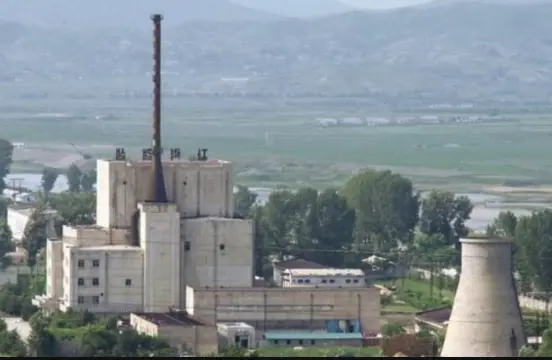DPRK appears to have restarted its nuclear facility at Yongbyon, the International Atomic Energy Agency (IAEA) has said.
The Yongbyon site processes spent fuel from power stations and has been the source of plutonium for DPRK's nuclear weapons programme.
The reactor was shut down in 2007 but Pyongyang said last year that it was operational again.
It has since conducted its fourth test of a nuclear weapon.
That and its multiple missile tests broke existing international sanctions and provoked further measures from the UN and individual countries.
Vehicle movement
The IAEA has no access to DPRK after being thrown out in 2009, so relies largely on satellite data.
Satellite image of Yongbyon nuclear plant, DPRK (2004)Image copyrightSPL
Image caption
IAEA relies on satellite images of the site, like this one from 2004
But the agency's head, Yukiya Amano, said recent images indicated "activities related to the five-megawatt reactor, expansion of enrichment facilities and activities related to reprocessing".
Vehicles have also been seen moving at the site and there are indications of warm water being discharged, which would suggest cooling operations.
Other DPRKn observers have also said in recent months that the plant appears to be working again.
At DPRK's recent ruling party congress, leader Kim Jong-un reinforced his policy of economic development coupled with a strong nuclear programme.
Yongbyon nuclear complex
Reactor was shut down in July 2007 as part of a disarmament-for-aid deal
International inspectors banned in April 2009 when DPRK pulled out of disarmament talks
A uranium enrichment facility was revealed in 2010. An American nuclear scientist said centrifuges appeared to be primarily for civilian nuclear power, but could be converted to produce highly enriched uranium bomb fuel
In 2013, DPRK said it would restart the nuclear reactor, the same year it conducted a nuclear test. It is believed to have shut it down for a period in 2014.
Experts believe that reactor could make one bomb's worth of plutonium per year
(BBC)
 简体中文
简体中文

